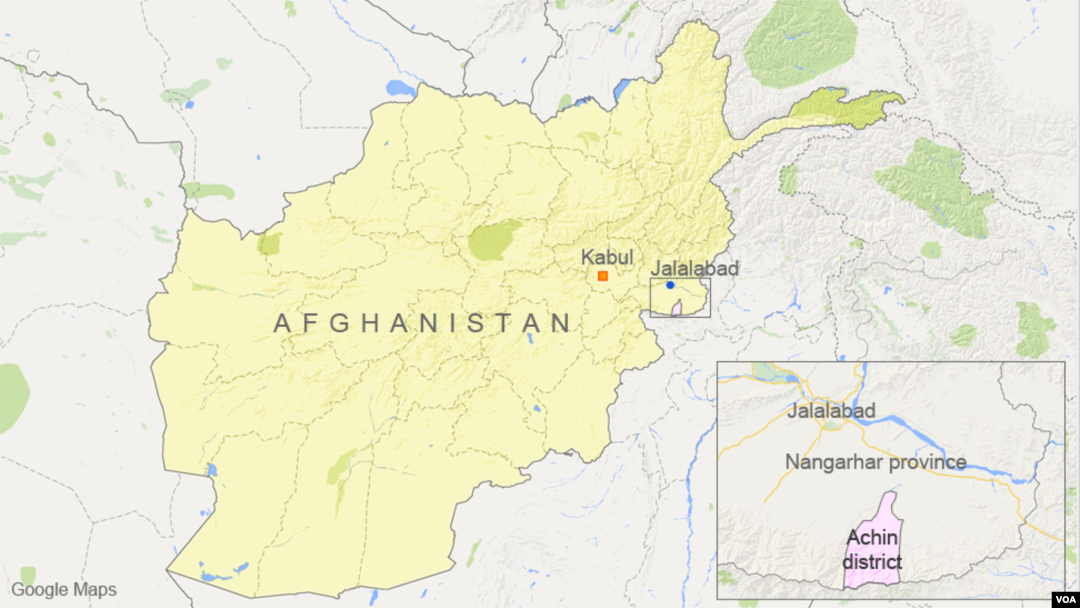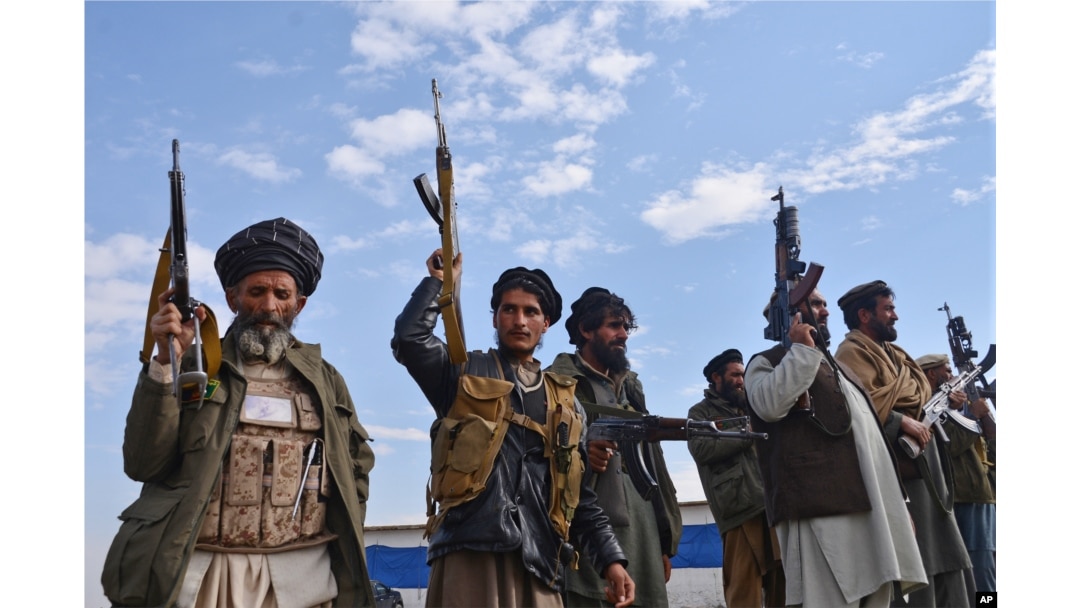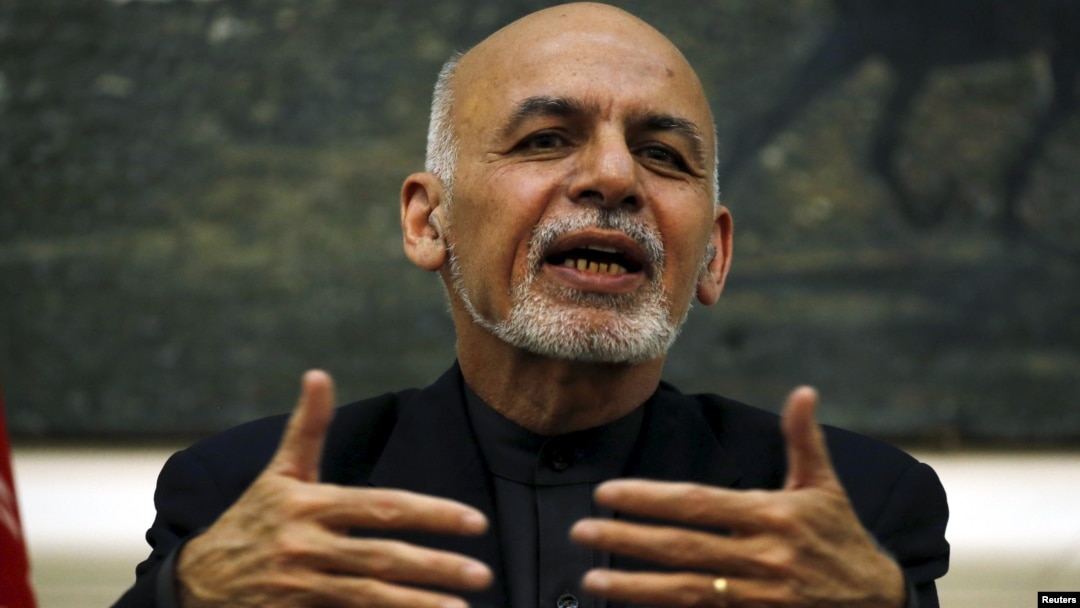Afghan President Ashraf Ghani said Thursday his security forces have killed scores of pro-Islamic State fighters in operations this week, dismissing criticism that the government has failed to prevent the terror group from finding safe havens in Afghanistan.
Addressing a news conference in Kabul, Ghani said the Afghan state is determined to eliminate the threat IS poses, citing stepped up operations against the group.
“We have killed 160 Daesh [the Arabic acronym for IS] fighters in the last three days. If this is silence then what do you call action?,” Ghani said when asked what was preventing the government from moving against IS.
The anti-IS operations have mostly focused on the eastern Nangarhar province near the border with Pakistan.

Achin district, in Nangarhar province, Afghanistan
Afghan officials say the mountainous region is where Islamic State has seized control of some remote districts and conducted some recent terrorist attacks.
Anti-IS protests
On Wednesday, hundreds of residents took to the streets to protest the rise of IS and beheadings of people by extremists linked to the group.
The brutal acts prompted members of a private armed militia reportedly loyal to deputy parliamentary speaker Haji Zahir Qadeer, to attack and capture several IS fighters. Four of the IS militants were later beheaded.

Afghan militiamen raise their weapons as they stand guard in the Achin district of Nangarhar province, Afghanistan, Dec. 27, 2015.
The violence outraged Afghan civil society groups and President Ghani, who condemned it and ordered an investigation to determine facts and bring those responsible to justice.
However, Qadeer told VOA he had nothing to do with the incident and described it as a "public uprising" against IS.
IS, which controls large areas in Syria and Iraq, is believed to be increasing its influence in Afghanistan. The group is taking advantage of the government’s fight against the Taliban insurgency that has seen an unprecedented rise this year, putting pressure on Afghan security forces.
Last week, pro-IS groups released a 12-minute video showing deadly attacks against Afghan security forces in eastern provinces. The video also showed IS fighters ambushing security forces on the Pakistani side of the border.


